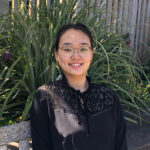
By Christina Park ’23
At the end of the first semester of the Undergraduate Library Fellowship, both the Making Team and the Research Team gave a presentation during a final showcase and received feedback from library mentors as well as past undergraduate library fellows. We showcased our plan and upcoming goals for the next semester, and emphasized that our underlying aim was to promote the Library Makerspace and improve accessibility to undergraduate students. We wanted more students to feel welcome in the space and take advantage of this resource.
We received constructive feedback on our presentation. Not only did we receive comments on how we could have improved details on our presentation, but we heard new ideas and brainstorming which significantly impacted the course of our project. We received suggestions to hold an “open house event” to introduce students to the Makerspace which had just moved from Moffitt to Doe Library, which we later decided to take on as our main project in the spring semester.
Initially, I had thought of “feedback” as synonymous with evaluation, grading, or even criticism. However, the feedback at the ULF showcase was a small example of how feedback would be used in a positive, constructive way throughout the fellowship that expanded on any ideas that we brought to the mentors or the research team. This was a valuable part of the process and helped improve the quality and depth of our project.
After touring and utilizing the space, we noticed that the Makerspace would be in a more prominent position in the Doe library and would be easier to find compared to its old location in first floor Moffitt. Despite my apprehensions that the Makerspace might feel more intimidating and inaccessible in Doe compared to Moffitt, the new Makerspace actually felt warm and open, clustered amongst other resources in the opening of Doe library across from Morrison Library.
One challenge for me was having patience throughout the process. I enjoy taking immediate action and working quickly with an aim of “finishing” in an effective manner. However, this style of work is not always conducive to every project, especially ones which involve creative thinking and brainstorming. In order to publicize the event by submitting the event details, registration link and flyer to different campus organizations and email newsletters on campus I had to wait for all these components to be assembled, and I acknowledged again how impatient of a person I am when it comes to completing my tasks.
Beyond this, we learned how to use small tools to facilitate our communication and collaboration. For example, although initially scheduling meetings seemed burdensome due to our varied and crammed schedules, we learned how to use Google Calendar functions to find mutually convenient times. We also had the opportunity to learn more about ourselves by taking an MBTI test and including it in our introductions in the first orientation meeting, as well as the Clifton Top 5 Strengths Assignment.
ULF emphasizes teamwork, creative thinking, and communication, which are highly coveted and important skills for many different positions. There was a great deal of growth and change in the structure of the fellowship from the first and second semester, and I think the fellowship was a genuine two-way collaboration between the mentors and the fellows. I am grateful for what I have learned throughout the ULF and for the mentors’ adaptability and implementation of new ideas, and I look forward to seeing how the ULF will expand and improve library experiences through the next cohort of fellows.